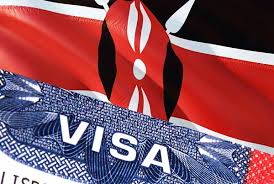Check the vaccines and medicines list and visit your doctor at least a month before your trip to get vaccines or medicines you may need. All travellers You should be up to date on routine vaccinations while travelling to any destination. Some vaccines may also be required for travel.
Measles
Infants (6 through 11 months old): 1 dose of measles-mumps-rubella (MMR) vaccine before travel. This dose does not count as the first dose in the routine childhood vaccination series. People 12 months old or older, with no evidence of immunity or no written documentation of any doses: 2 doses of MMR vaccine before travel. The 2 doses must be given 28 days apart. People 12 months old or older who have written documentation of 1 dose and no other evidence of immunity: 1 additional dose before travel, at least 28 days after the previous dose.
Routine vaccines
Make sure you are up-to-date on routine vaccines before every trip. These vaccines include measles-mumps-rubella (MMR) vaccine, diphtheria-tetanus-pertussis vaccine, varicella (chickenpox) vaccine, polio vaccine, and your yearly flu shot.
Yellow Fever
required for arriving travellers from all countries if traveller is ≥9 months of age. Note: Yellow fever vaccine availability in the United States is currently limited. If you need to be vaccinated before your trip, you may need to travel some distance and schedule your appointment well in advance. Find the clinic nearest you. Most travellers get travel vaccines and medicines because there is a risk of these diseases in the country you are visiting.
Hepatitis A
CDC recommends this vaccine because you can get hepatitis A through contaminated food or water in Burundi, regardless of where you are eating or staying.
Malaria
You will need to take prescription medicine before, during, and after your trip to prevent malaria. Your doctor can help you decide which medicine is right for you, and also talk to you about other steps you can take to prevent malaria. Areas of Burundi with risk of malaria: All. See more detailed information about malaria in Burundi.
Typhoid
You can get typhoid through contaminated food or water in Burundi. CDC recommends this vaccine for most travelers, especially if you are staying with friends or relatives, visiting smaller cities or rural areas, or if you are an adventurous eater. Some travellers ask your doctor what vaccines and medicines you need based on where you are going, how long you are staying, what you will be doing, and if you are traveling from a country other than the US.
Cholera
Vaccination may be considered for adults who are traveling to areas of active cholera transmission. Areas of active cholera transmission are localized to the provinces of Bujumbura Mairie, Cibitoke, and Rumonge (last case reported February 2019) in Burundi. Cholera is rare in travelers but can be severe. Certain factors may increase the risk of getting cholera or having severe disease (more information). Avoiding unsafe food and water and washing your hands can also help prevent cholera.
Hepatitis B
You can get hepatitis B through sexual contact, contaminated needles, and blood products, so CDC recommends this vaccine if you might have sex with a new partner, get a tattoo or piercing, or have any medical procedures.
Rabies
Rabies can be found in dogs, bats, and other mammals in Burundi, so CDC recommends this vaccine for the following groups: Travelers involved in outdoor and other activities (such as camping, hiking, biking, adventure travel, and caving) that put them at risk for animal bites. People who will be working with or around animals (such as veterinarians, wildlife professionals, and researchers). People who are taking long trips or moving to Burundi Children, because they tend to play with animals, might not report bites, and are more likely to have animal bites on their head and neck.









